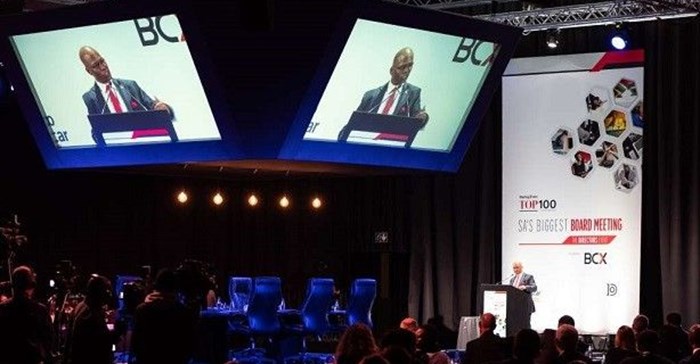
The event attracted an audience of senior management and C-level executives who participated as industry leaders unpacked the major issues affecting the country’s economy during three moderated panel discussions.
The Directors Event is presented in association with the prestigious Sunday Times Top 100 Companies Awards, the Institute of Directors (IodSA), and BCX.
This year’s keynote address was delivered by South African Chief Justice Mogoeng Mogoeng who questioned how SA had jettisoned its value system to the extent that corruption was allowed to flourish. SA’s election process, he said, was fundamentally flawed, adding that it matters who becomes president of the country, who becomes a premier, a cabinet minister or a mayor.
Leaders should not be chosen from the ranks of those who have resources or for their connections, but rather because they have the necessary skills to address the many problems facing the country, said the Chief Justice.
We owe it to ourselves and to prosperity to only appoint the best to positions of responsibility.Candidates for leadership positions should be required to meet stringent requirements before being considered and should be subjected to much greater public scrutiny.
We need to be asking the hard questions of our potential leaders so that we get the best to lead us.Mogoeng called for a reflection on how political parties are funded, noting that the current system encourages favours in return and that “money speaks”.
This year’s Chairman’s Report was delivered by Phuti Mahanyele-Dabengwa, executive chairperson of Sigma Capital and a trustee of the Cyril Ramaphosa Foundation (previously known as the Shanduka Foundation). She said education was key to driving SA forward and said the foundation had made a number of contributions to affect real change in education.
Referencing the Ninja generation (no income, no jobs and no assets), she said the reality was that neither the public nor private sectors would be able to absorb all school leavers, which made the creation of an entrepreneurial culture so vital.
A panel discussion on youth employment and entrepreneurship discussed current initiatives in place to address the issue of youth unemployment, as well as the need to create a more enabling and supportive environment for aspiring entrepreneurs.
A second panel discussion focused on digital transformation and whether inclusive technology innovation had the potential to develop SA’s economy. What is clear is that technology is disrupting both business and society; it’s changing the nature of work and making a growing number of people redundant. However, there is no doubt that digital transformation is good for business with digitally transformed companies overtaking their less digitally transformed counterparts.
SA needs to think very carefully about which digital technologies it adopts and the potential social consequences of these technologies in order to ensure a more equitable society going forward.
The final panel discussion of the day focused on SA’s politics and the economy, both of which are in crisis. To achieve a high road outcome all stakeholders need to act in the national interest and make some hard trade-offs and compromises. Critically, SA needs to become better at implementing plans; develop better partnerships with the private sector, put the right leaders in place, and better manage political contestation.